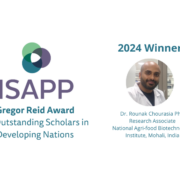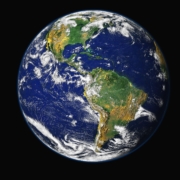Past President and founding board member Prof. Gregor Reid is stepping down from the ISAPP Board in Banff in June 2020, as he retires from Western University and his Endowed Chair position at Lawson Health Research Institute the following month. In this blog post, he shares thoughts on his career and the opportunities for his replacement and for others to continue probiotic research. See here for information on the position of Research Chair in Human Microbiome and Probiotics at the Lawson Health Research Institute.
By Gregor Reid BSc (Hons), PhD, MBA, ARM CCM, Dr HS, FCAHS, FRSC
A mere blue dot. A pinhead, if that. But it’s us, all we have been and all we will be – for a while at least. The planet Earth.
Its magnificence is there for all to see.
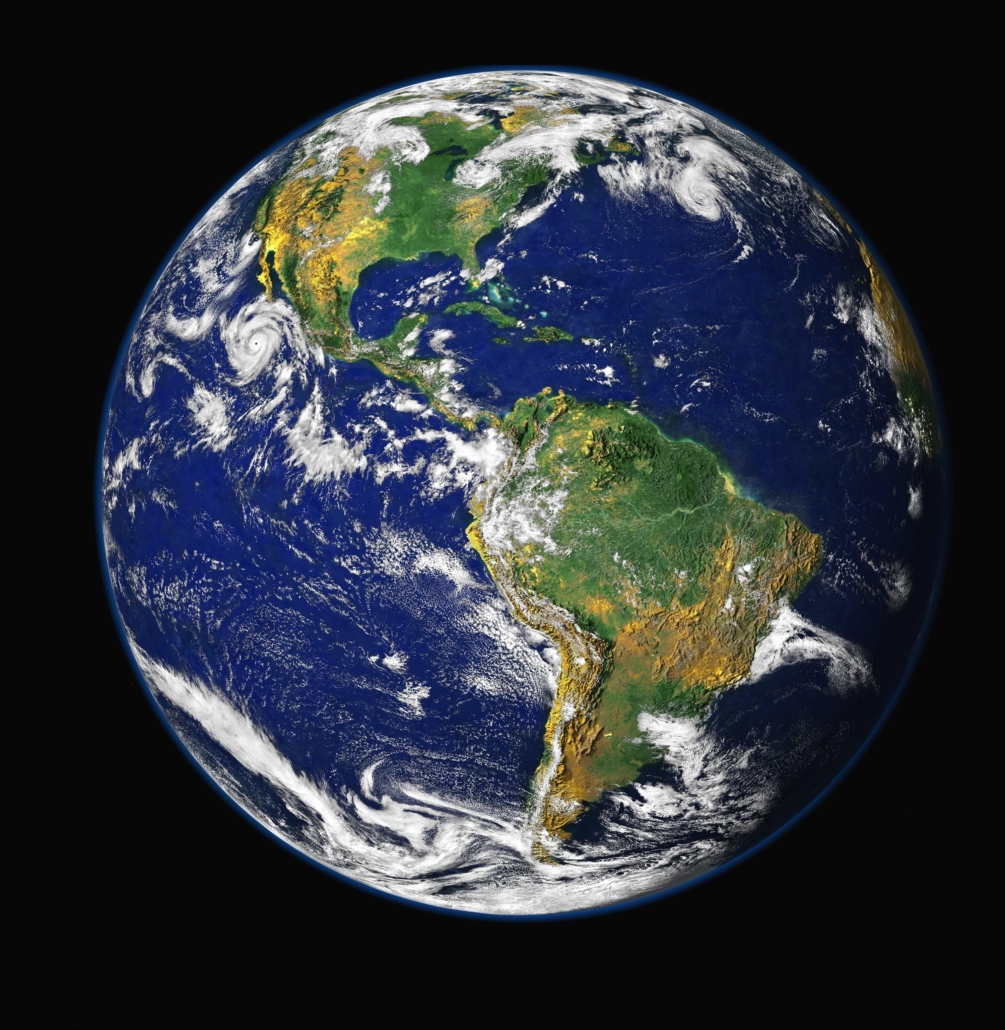
Creative Commons Earth Illustration, by Pixabay
I’ve been fortunate to have visited over 60 of the countries on this majestic globe. One of the perks of being a scientist. And for those who know me well, I’ve taken my camera and my music with me on the journey. In this blog post, I’ll share some pieces of both and how they form part of who we are and what we study.
Across the vast surface of our planet, and within it, there are countless microbes. As life emerges from the surface, we shouldn’t be surprised that microbes climb on board. Whether plants, honey bees, fish, birds, lions, humans, microbes accompany each.
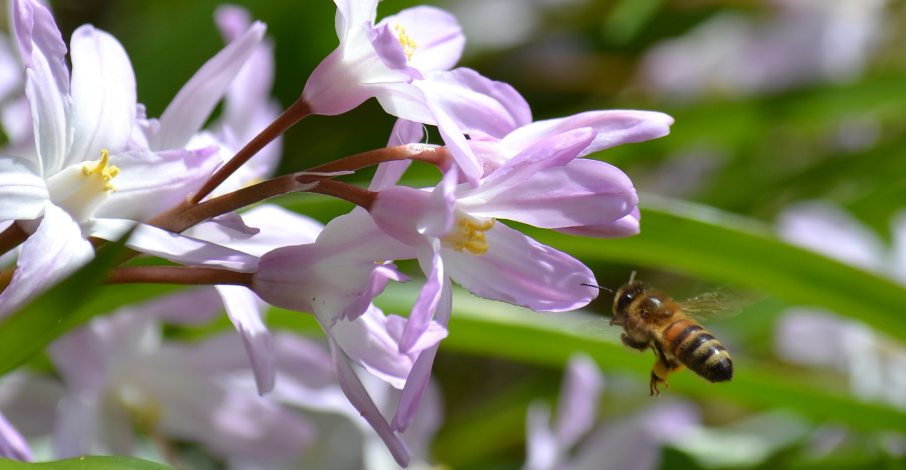
Photo by Andrew Pitek. Used with permission.
Just being human is a guest house1.
Understandably, since some of these microbes can be deadly to humans, our ancestors had to find ways to stop them. Whether plague, diphtheria, smallpox, influenza, wound infections, or other fatal diseases. And so, the marvels of vaccination and antibiotics were born.
Arguably, these miraculous interventions also brought complacency as a societal side-effect, despite the warnings of people like Alexander Fleming. The greatest possibility of evil in self-medication is the use of too small doses so that instead of clearing up infection the microbes are educated to resist penicillin2.
We all but ignored the collateral damage, pacified by label warnings of diarrhea and nausea until Clostridium difficile woke us from our slumber. When the antibiotics stopped working, we went out into left field and started using human poop! Too ridiculous to work, until it worked. Really well.
We’re running through the dark, and that’s how it starts. Don’t know what you’re doing to me. And it might be getting better3.
Prior to that radical step, an awakening had occurred through people like Metchnikoff but more recently Savage, Tannock, McKay, Costerton, Bruce, and others who led us to the microbes that have been helping us all along. In the case of Andrew Bruce, he wondered if replenishment of lactobacilli into the urogenital tract of women might help prevent recurrence of infection. But in the late seventies and early eighties, the collective ‘we’ wasn’t ready to listen.
You came like a comet, blazing your trail. Too high, too far, too soon, you saw the whole of the moon4.
In 2001 in the city of Cordoba, Argentina, a group of experts were assembled and asked to come up with a definition for probiotics5. This helped set a path that we remain on today.
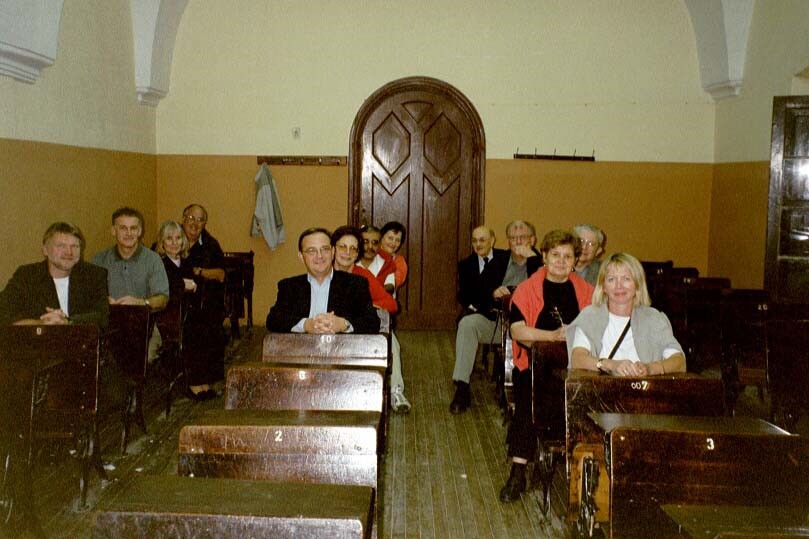
But a definition is nothing without application and acceptance and stewardship. It requires passage to voices across the world. That is why the International Scientific Association for Probiotics and Prebiotics (ISAPP) has been a mountain overseeing the field. Led so wonderfully by Mary Ellen Sanders, Glenn Gibson and other outstanding scientists, it is symbolic of the climb many have had to make.
If you understand or if you don’t. If you believe, or if you doubt. There’s a universal justice, and the eyes of truth are always watching you6.
There’s always gonna be another mountain. I’m always gonna wanna make it move. Always gonna be an uphill battle. Sometimes I’m gonna have to lose. Ain’t about how fast I get there, ain’t about what’s waiting on the other side. It’s the climb7.
It has certainly been a climb. For each of us. Cynicism too often outweighing optimism. Hype outweighing truth. Profit ahead of science. Ignorance over understanding. But together, we have reiterated the message, the importance of studies and data. Not in experimental mice or test tubes, but in the ultimate host where benefits are sought.
The road has taught me to fight our corner, but also that there is a magnificence and mystery in this planet we share. From the birth of a baby to the honey bee that pollinates our crops, to the salmon that crosses from salt to fresh water and back. All from the Mother we share8.
I’ve been fortunate that my career has allowed me to pursue my dream, although it’s never quite as it seems9. One song sums it up for me: While I’m alive I’ll make tiny changes to earth10.
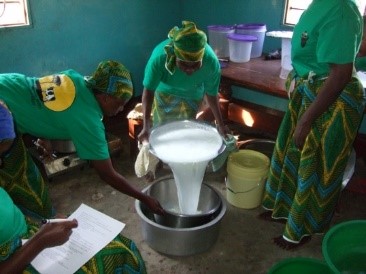
I hope that I have made some tiny changes, especially in the poorest regions of Africa where the probiotic fermented foods of Western Heads East and Yoba-for-life are impacting lives of the young and old. Such inspiring people!
I think if each person is able to make tiny changes, we can leave this life better than whence we came.
As retirement looms, it’s funny how the same question is asked repeatedly. “So, what will you do now?” My answer is I’m moving to America. It’s an empty threat11. Actually, I think back to second year of my honours’ degree at Glasgow University and second year of my PhD at Massey University when my answer was “I don’t know for sure, but I’ll do my best.” I think we need to follow the voice inside us and hope that tomorrow brings wellness and satisfaction.
I won’t fill my walls with framed degrees or awards. Those are for photo albums of a blessed past. They were made possible because of hard work, an incredible family, and a set of friends and talented colleagues too numerous to name.
I’m proud of my publications and students, and hope they inspire others. But I only have two hands12, and we need the Big Ideas for you and me13. So, the laboratory, supplies, offices, and amazing staff and students at the St. Joseph’s Hospital site in London, Ontario await a new direction and someone to carry the fire14. For whoever is my successor, I will wish that tomorrow brings another day, another ray of hope15 and that he or she remembers you only get what you give16, and you only get one shot, do not miss your chance17.
Scientific endeavour, an open mind, supportive colleagues, and taking chances all make for an exciting career. I followed a path barely walked. It ostracized me from many in mainstream microbiology. When grant panel reviewers don’t believe your work has value or is needed, life gets challenging. So, you follow your heart, you lean on those who agree with you, and publish on peripheral topics to stay noticed. Then you smile when your critics actually start studying beneficial microbes and probiotics, and understand what you’ve been saying all along.
Probiotics are more than science. They encompass a philosophy, an anthropological perspective, a bridge between past and future. They are a mountain range of possibilities. As researchers we are still people. We should never shut out the disciplines and sounds and voices that surround us. We need to awaken them like adding medium to a dried Lactobacillus and watching it grow.
The possibilities are just as endless as when I started. But they need younger hands with the latest and future technical skill-sets to pursue the big ideas and to be a steward in defending probiotic science and excellence. These are indeed exciting times.
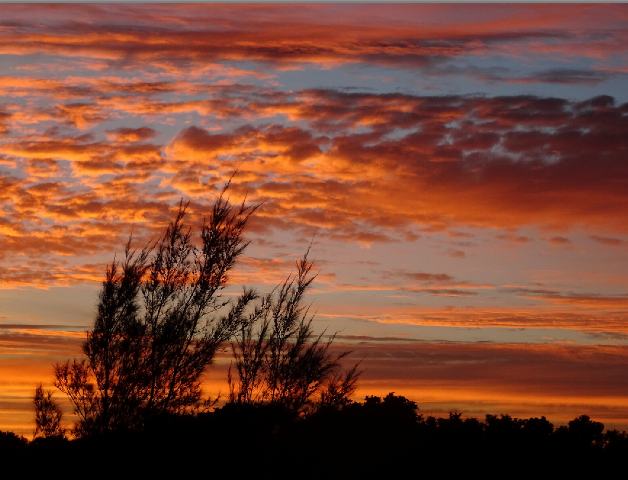
In closing, I hope you enjoy the music selection — and the irony of some of the album names.
As for me heading into the sunset of this journey: Let the music play. I just wanna dance the night away18.
References (unlike any you’ve seen before)
- Coldplay. 2017. Kaleidoscope, from A Head Full of Dreams.
- Alexander Fleming. 1945. In, The New York Times.
- British Sea Power. 2017. What You’re Doing, from Let the Dancers Inherit the Party.
- The Waterboys. 1985. The Whole Of The Moon, from This is the Sea.
- Food and Agriculture Organization of the United Nations and World Health Organization. 2001. Probiotics in Food. http://www.fao.org/3/a-a0512e.pdf
- Enigma. 1993. The Cross Of Changes from album of the same name.
- Miley Cyrus. 2009. The Climb, from Hannah Montana: The Movie.
- Chvrches. 2013. The Mother We Share, from The Bones of What You Believe.
- The Cranberries. 1992. Dreams, from Everybody Else is Doing It.
- Frightened Rabbit. 2008. Head Rolls Off, from Midnight Organ Fight.
- Kathleen Edwards. 2012. Empty Threat, from Voyageur.
- Avicii. 2013. Wake Me Up, from True.
- The Boxer Rebellion. 2016. Big Ideas, from Ocean by Ocean.
- Editors. 2010. No Sound But The Wind, from the Twilight Saga: New Moon.
- Bill Nelson. 1983. Another Day, Another Ray of Hope, from Chimera.
- New Radicals. 1998. You Get What You Give, from Maybe You’ve Been Brainwashed Too.
- Eminem. 2002. Lose Yourself, from the movie 8 Mile.
- Barry White. 1975. Let The Music Play, from the album of the same name.
See here for a video interview with Gregor Reid on his long career in probiotic science and how the field evolved over time.

